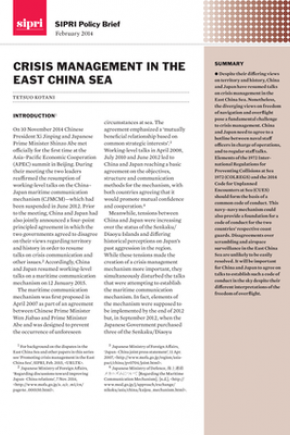The independent resource on global security
Crisis Management in the East China Sea
Despite their differing views on territory and history, China and Japan have resumed talks on crisis management in the East China Sea. Nonetheless, the diverging views on freedom of navigation and overflight pose a fundamental challenge to crisis management. China and Japan need to agree to a hotline between naval staff officers in charge of operations and to regular staff talks. Elements of the 1972 International Regulations for Preventing Collisions at Sea (COLREGS) and the 2014 Code for Unplanned Encounters at Sea (CUES) should form the basis of a common code of conduct. This navy–navy mechanism could also provide a foundation for a code of conduct for the two countries’ respective coast guards. Disagreements over scrambling and airspace surveillance in the East China Sea are unlikely to be easily resolved. It will be important for China and Japan to agree on talks to establish such a code of conduct in the sky despite their different interpretations of the freedom of overflight.

